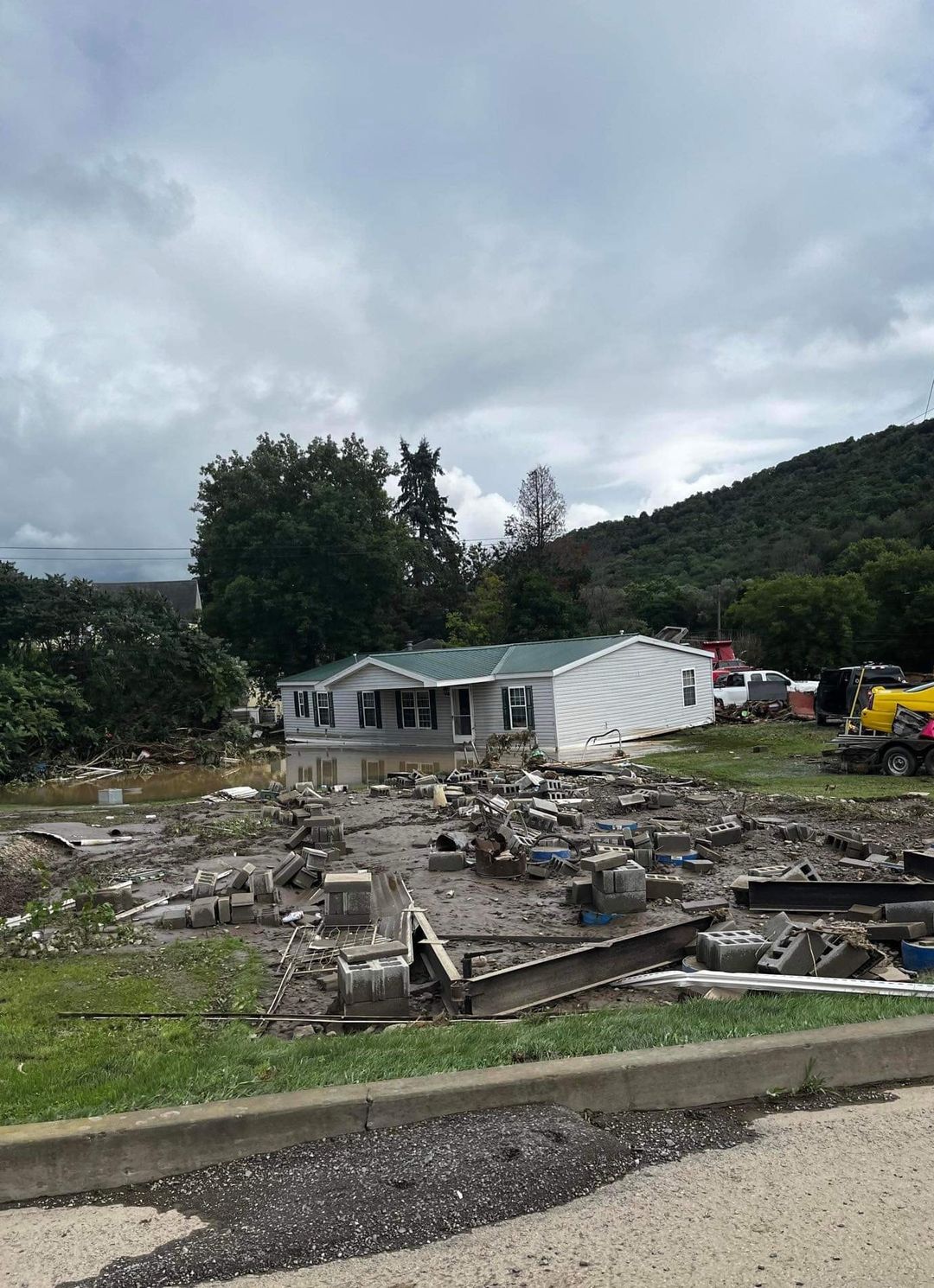A town in the Marcellus In Need of Hope
Westfield, Pennsylvania. A town that, on any other day, might escape your notice. A place where life moves slowly, where history is written in the rust on old farm equipment and the peeling paint of century-old houses. But when the sky opened up and the rain came, Westfield was catapulted into the kind of disaster that makes national headlines, if only for a moment.
The remnants of Tropical Storm Debby didn’t just bring rain—they brought ruin. For hours, the sky unleashed a fury that turned the town into a watery hellscape. Streets transformed into rivers, homes became islands, and the simple act of staying alive became a fight. This wasn’t just a flood. It was a complete unraveling of the life these people knew.
As the water rose, there was no time to think—only to react. National Guard helicopters became lifelines, lifting people from rooftops as the floodwaters swallowed entire neighborhoods. You could hear the fear in their voices, the disbelief that this was really happening. In a place where nothing much ever changes, everything was suddenly, irreversibly different.
And it wasn’t just Westfield. The nearby towns of Trout Run, Galeton, Liberty, and Knoxville were also hit hard. These are places where many families rely on the oilfields, where the Marcellus Shale once symbolized hope and opportunity. The shale, rich with natural gas, brought jobs and a sense of security to these towns. Oilfield workers made their homes here, bringing with them a rugged resilience, a belief that hard work would pay off. But now, as they look out at the flooded remnants of their towns, that belief feels shaken. The floodwaters have taken more than just property; they’ve taken away the sense of security that came with being part of a booming industry.
Here’s the brutal truth: Westfield, Trout Run, Galeton, Liberty, and Knoxville aren’t bouncing back from this on their own. Not anytime soon. In these towns, already struggling to hold on, this kind of disaster doesn’t just knock you down—it keeps you there. The damage is overwhelming, the resources are scarce, and the help that was promised is slow to arrive, if it comes at all.
Sure, the water will eventually recede. The roads will dry out, and the sun will shine again. But the scars will remain—physical, emotional, and economic. Businesses that were already on the edge will close for good. Families that have been here for generations will pack up and leave, chasing some semblance of stability elsewhere. And the ones who stay will find themselves in a place that feels foreign, a place that looks like home but no longer feels like it. What do you do when the only life you’ve known is swept away? That’s the question hanging over these towns now. The hard truth is, some will never fully recover. These towns themselves may never recover.
In a few months, when the rest of the world has moved on, Westfield and its neighboring towns will still be here, trying to piece together lives that don’t quite fit anymore. This flood will be remembered not just for the damage it did, but for what it took away—a way of life, a sense of security, the belief that tomorrow will be just like today. In these towns, tomorrow is a big question mark, and that’s a terrifying reality for places that have always relied on the steady rhythm of the past.
to help, click here
to help

James A. Asbury
